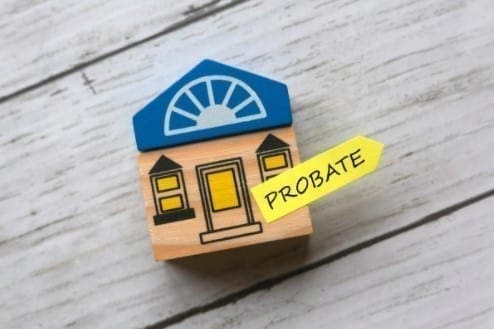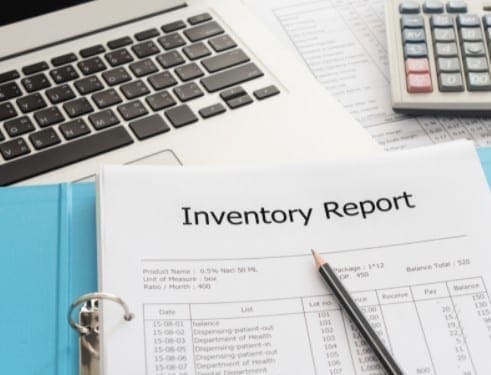 If you are like most people, just the word Probate sounds so menacing that it can make your head spin. What is probate? Do you always go through probate when someone dies? Which assets get probated and which ones don’t? Do I need a probate attorney? How much does it cost? How long will it take?
If you are like most people, just the word Probate sounds so menacing that it can make your head spin. What is probate? Do you always go through probate when someone dies? Which assets get probated and which ones don’t? Do I need a probate attorney? How much does it cost? How long will it take?
And a million other questions that may go through your head. This stuff is complicated enough on a regular day, trying to understand this while you’re grieving a loved one, can be impossible.
If you pronounce the word “probate” in tones usually reserved for speaking about food poisoning, I’m going to break it down in the simplest words possible. You are going to come out on the other side of this article feeling like you just went to law school. Or at the very least like you can go through the probate process without blacking out.
Terms to Know
Legal proceedings often involve terminology that can be overwhelming. So here are a few useful probate terms to know:
-
Decedent – The deceased person whose estate is going through probate.
-
Executor – the person responsible for distributing the property, money, and assets within the estate
-
Administrator – A court-appointed executor, if someone dies without leaving a will.
-
Intestate – A case where someone dies without a will.
-
Intestacy – State laws determine how to distribute such estates.
-
Fiduciary Certificate – A document issued by the court, authorizing the executor or administrator of a will to take control of a decedent person’s estate.
- Beneficiary – A person or entity, named in the decedent’s will.
- Heir – A person related by marriage or blood to the decedent.
What Is Probate?
Basically, paperwork. When someone dies, there’s just an awful lot of paperwork that needs to be sorted out. Probate is a court-supervised process of transferring the ownership of the decedent’s assets upon death.
The court protects the estate’s assets until a judge can confirm the validity of the Will and true beneficiaries. The Probate process also ensures that all debts and liens on the estate have been settled, the creditors have been paid and estate taxes are paid.
Does Having a Will Avoid Probate?
Short answer, NO! The Will acts as a guideline for the Probate court by naming the executor of the estate and outlining the decedent’s wishes for the distribution of their assets.
Furthermore, just being named the executor in a Will, does not give that person the authority to access the decedent’s assets. The executor must be appointed by the court.
Related Post: Does A Will Avoid Probate?
How To Prove a Will?
The first step to proving a will is by submitting the original Will to the Probate Court, along with the death certificate and a Petition, which is typically filed by the person requesting to be the executor of the estate.
After all potential heirs and beneficiaries are notified of the filing, the Court will offer an opportunity for a hearing. And unless there are valid objections, appoint the executor.
After someone is appointed as Executor, they can access the decedent’s accounts, pay any pending bills and begin preparations for filing the paperwork with the Probate Court for the proposed distribution of assets as stated in the Will.
What Happens Without a Will?
If the decedent did not leave a will, the documents submitted to the probate court include the death certificate and a petition to become the administrator of the estate. Once all potential heirs are notified and no one contests the appointment, the court will appoint the administrator (or administratrix).
Without a Will, the decedent’s assets will pass under a hierarchy of relatives, including spouse, children, parents, and siblings, according to the laws of intestacy, in the state of residence of the decedent at the time of death.
Full Probate V. Short Form Probate
In Connecticut, if the decedent’s solely-owned probate assets do not include any real property and are valued at less than $40,000, then the estate can be settled with a shorter and easier probate process.
To calculate the estate’s solely owned probate assets, first, remove any assets that pass without the need for probate, then include:
- Assets with Designated Beneficiaries: Assets such as retirement accounts, life insurance policies, and certain bank or brokerage accounts that are either payable or transferable upon death.
- Joint Property: When one of two joint owners and tenants of a property dies, the property automatically passes to the surviving tenant under the “right of survivorship”.
- Assets held in a Living Trust: These assets can be distributed upon death per the trust’s instructions and are not included in the total of probated assets. However, this does not mean that they are exempt from the gross taxable estate, subject to state or federal estate tax, unlike assets held in an irrevocable trust.
Add up all assets owned solely by the decedent, like bank accounts and investment accounts (with no designated beneficiary), and cars. If that total value is above $40,000 (or includes real property), full probate is required. If it falls below that number and does not include real property, you may proceed with short-form probate, AKA Affidavit in Lieu, or Probate.
Can The Probate Process Be Avoided Entirely?
Technically, yes! If there are absolutely no assets individually owned by the decedent. But remember, in the State of Connecticut, an estate tax return must be submitted to the probate court whether the estate goes through the probate process or not.
All assets have to be listed in order to calculate whether estate taxes are owed, and probate court fees will be charged on the total amount of the estate. In other words, the fee to the probate court is the same, whether you go through full probate or no probate at all. That’s just the law, whether it makes sense or not.
IMPORTANT TIP – Even though the jointly-owned property does not go through the probate process and the surviving tenant automatically inherits it through the right of survivorship, certain documents must be filed with the probate court in order to release the lien on the property to the surviving tenant.
If the surviving property owner wants to sell the property in the future, and the lien has not been released, the owner will have to file an estate tax return. Another reason why contacting a probate attorney as soon as possible is crucial after the death of a loved one, even if you don’t think you need one – get all your ducks in a row!
Related Post: Beneficiary Vs Heir – What Is The Difference?
 What Happens Once an Executor (Or Administrator) Has Been Appointed?
What Happens Once an Executor (Or Administrator) Has Been Appointed?
Inventory Collection and Security
Once you have been named the executor or administrator (collectively known as a fiduciary) of an estate, it’s time to start collecting all the necessary paperwork regarding the known assets. Bank statements from the date of death, addresses of any owned property, proper documentation of owned vehicles (car, boat, RV), etc., and place them under your control.
If there are any bank accounts in the decedent’s name, the fiduciary should open up a bank account for the estate and transfer all bank accounts into the estate account.
The Estate’s Inventory must be submitted to the court within 2 months from the date of your appointment. The inventory is a listing of all the decedent’s probate assets, along with the value of those assets as of the date of death.
While the inventory only lists assets that will go through the probate process, non-probated assets will have to be listed on the estate tax return. So it’s a good idea to gather all of the decedent’s assets. If you’re feeling overwhelmed, don’t worry, we take care of all the legal stuff. Just turn over all of the documents to us, and we will file the inventory for you.
Creditor Notification
If you know of any unpaid bills or discover them through the inventory collection process, it is your job to notify said creditors of the decedent’s passing and pay off any pending debts. The probate court will publish a notice in the local newspaper to notify all potential creditors of the person’s death when the fiduciary is appointed.
Creditors have 150 days from the date of the fiduciary’s appointment to send written notice of the debt the decedent owed them.
Estate Tax Return Submission
All assets, whether subject to probate or not, are listed on the estate tax return and are used to calculate the probate fees. When it comes to estate taxes, odds are the Estate will not owe any.
The Connecticut gift and estate tax exemption amount has increased to $12.92 million as of January 1, 2023, meaning if the entire estate is valued below 12.92 MILLION DOLLARS, the Estate is exempt from that particular tax.
The estate tax return document is due within six months from the date of death. The deadline is very important because if it is not filed on time, penalties can be assessed even if there are no taxes due.
Financial Report Submission
Now that all assets have been accounted for and the debts and fees have been paid, the financial report is an accounting of everything that has happened financially from the date of death to the current day.
You start with the total amount reported on the inventory and add any income, interest, or dividends accrued since. As well as any gain (or loss) on the sale of assets.
Deduct administrative expenses, such as funeral costs, expenses associated with maintaining the decedent’s home, attorney’s fees, court fees, and accounting fees, as well as taxes paid (income tax, property tax, etc.).
The financial report will also list the proposed distribution of the remaining assets and any amount that needs to be reserved for unpaid taxes and fees.
No need to worry about filling out this report either – that’s what your attorney is for!
Closing of The Estate
As long as there are no surprises along the way, the entire probate process could take as little as 9 months and short-form probate could take even less.
Related Post: Can You Choose Your Own Probate Attorney?
 Important TIP – Consult With a Probate Attorney As Soon As Possible
Important TIP – Consult With a Probate Attorney As Soon As Possible
This article may be called “Connecticut Probate Process for Dummies” but even an extremely educated person cannot do this alone. The right probate attorney can guide you through this whole process with ease and tell you exactly what you need to do and when you need to do it.
All you need to do is present them with all the documents you have (death certificate, Will, bank statements, etc.) and they will take it the rest of the way.
Our own Probate attorney, Attorney Kristen Prout, will get you through this difficult time from start to finish. We will file all the petitions and subsequent documents with the appropriate probate court and notify all beneficiaries (that you have provided us with), every step of the way. As long as everyone is on the same page, there is no reason for the probate process to be a scary situation.
If you are reading this because a loved one has just passed and you are doing your research, call us today to schedule a consultation with Attorney Prout, forward this to your friends that may need the information, and save this post for a rainy day.
Disclaimer: The information provided in this article does not, and is not intended to, constitute legal advice and is for general informational purposes only.
Let Us Know How We Can Help!
Please fill in your contact information and a brief message about what you need help with. A consultation will need to be scheduled in order to provide legal guidance.
Marketing & Technology Director at RWC, LLC, Attorneys & Counselors at Law
Ukraine born and Israel / Miami, FL raised. University of Miami graduate in the Marketing field.
Mom to a girl, a boy, and a Siberian Husky.







